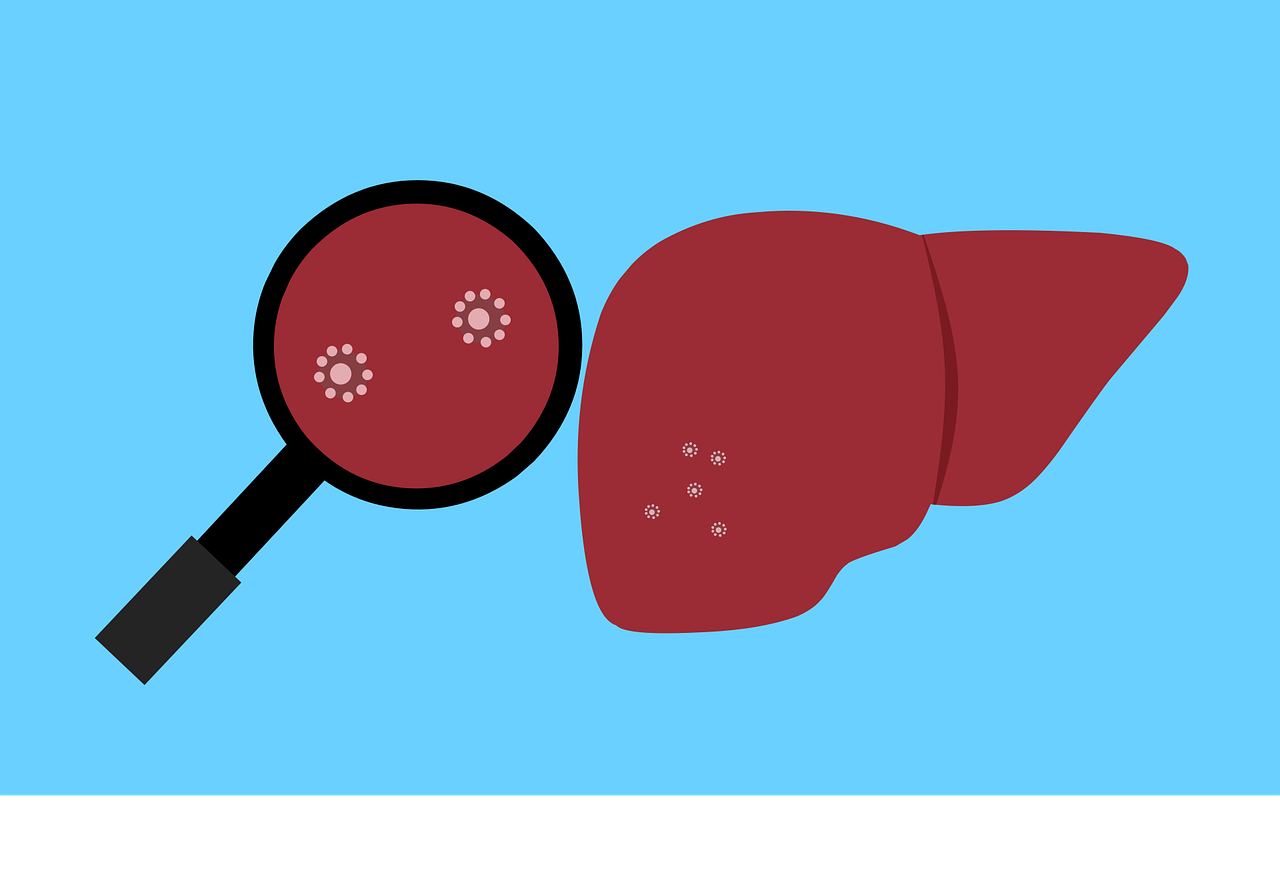Understanding Hepatitis C: Causes, Symptoms, Treatment

Table of Contents
What is Hepatitis C?
Hepatitis C is a viral infection that primarily affects the liver. It is caused by the hepatitis C virus (HCV) and is considered a major public health concern worldwide. The virus is transmitted through contact with the blood of an infected person, most commonly through sharing contaminated needles or other drug paraphernalia, receiving blood transfusions or organ transplants before 1992, or through unprotected sexual intercourse with an infected individual.
Once inside the body, the hepatitis C virus attacks the liver cells, leading to inflammation and potentially causing long-term damage. The infection can range from a mild illness lasting a few weeks to a chronic condition that persists for years or even decades.
Most people with hepatitis C do not experience any symptoms during the early stages of infection. However, as the disease progresses, symptoms may develop, including fatigue, jaundice (yellowing of the skin and eyes), abdominal pain, loss of appetite, and dark urine. If left untreated, hepatitis C can lead to serious complications, such as cirrhosis (scarring of the liver), liver failure, and liver cancer.
Fortunately, advancements in medical research have led to the development of highly effective treatments for hepatitis C. Direct-acting antiviral medications are now available, which can cure the infection in the majority of cases. These medications work by targeting and eliminating the virus from the body, allowing the liver to heal and reducing the risk of long-term complications.
If you believe you may have been exposed to hepatitis C or are experiencing symptoms, it is important to seek medical attention for testing and evaluation. Early detection and treatment can significantly improve outcomes and prevent the progression of liver damage.
- Use protection during sexual activity to reduce the risk of transmission.
- Avoid sharing needles or other drug paraphernalia.
- Practice safe hygiene by not sharing personal items such as toothbrushes or razors.
- Ensure proper sterilization of medical equipment to prevent transmission in healthcare settings.
- Get vaccinated against hepatitis A and B to protect the liver from additional infections.
By understanding the causes, symptoms, and available treatments for hepatitis C, individuals can take proactive steps to protect themselves and prevent the spread of the virus.
Common Causes of Hepatitis C
Hepatitis C is a viral infection that primarily affects the liver. It is important to understand the common causes of this disease in order to prevent its transmission and take appropriate precautions. Here are the main ways in which hepatitis C is typically transmitted:
- Contaminated Blood Transfusions: Before 1992, blood transfusions were not routinely screened for hepatitis C. Therefore, if you received a blood transfusion or organ transplant before that time, you may have been exposed to the virus.
- Sharing Needles or Drug Paraphernalia: Hepatitis C spreads easily through blood-to-blood contact. People who inject drugs and share needles or other equipment are at high risk of contracting the virus.
- Unsafe Medical Practices: Reusing needles, syringes, or other medical equipment without proper sterilization can lead to the transmission of hepatitis C. This can occur in healthcare settings, such as clinics or hospitals, especially in countries with limited resources or poor infection control measures.
- Unprotected Sexual Contact: Although the risk of sexual transmission is relatively low, engaging in unprotected sex with multiple partners or having a sexually transmitted infection (STI) can increase the chances of contracting hepatitis C.
- Vertical Transmission: Pregnant women with hepatitis C can transmit the virus to their babies during childbirth. However, the risk of transmission is relatively low, around 4-6%.
It is important to note that hepatitis C is not spread through casual contact such as hugging, kissing, or sharing utensils. Additionally, the virus is not transmitted through breastfeeding, unless there are bleeding nipples or sores on the breast.
Understanding the common causes of hepatitis C can help individuals and communities take appropriate measures to prevent its spread. This includes practicing safe injection techniques, using barrier methods during sexual activity, and ensuring proper sterilization of medical equipment.
Recognizing Symptoms of Hepatitis C
Hepatitis C is a viral infection that primarily affects the liver. It is important to recognize the symptoms of hepatitis C as early diagnosis and treatment can prevent further liver damage and complications. However, it is worth noting that some people with hepatitis C may not experience any symptoms at all, and the infection may go unnoticed for years.
Here are some common symptoms that may indicate the presence of hepatitis C:
- Jaundice: Yellowing of the skin and eyes is a classic symptom of hepatitis C. It occurs due to the buildup of bilirubin, a yellow pigment produced when the liver breaks down old red blood cells.
- Fatigue: Feeling excessively tired or fatigued is a common symptom of hepatitis C. This persistent lack of energy can significantly impact daily activities.
- Abdominal pain: Some individuals with hepatitis C may experience mild to severe abdominal pain. This can be due to inflammation and swelling of the liver.
- Dark urine: Hepatitis C can cause the urine to become dark in color. This occurs as a result of the liver’s reduced ability to eliminate waste products effectively.
- Loss of appetite and weight loss: Many people with hepatitis C may experience a decreased appetite, leading to unintended weight loss. This can be a result of liver inflammation impacting digestion and nutrient absorption.
- Nausea and vomiting: Some individuals may experience nausea, which can occasionally lead to vomiting. This symptom can be mild or severe.
- Joint pain: Hepatitis C can cause joint pain and stiffness, similar to arthritis. This symptom is more common in individuals with chronic hepatitis C.
If you notice any of these symptoms or suspect you may have been exposed to the hepatitis C virus, it is crucial to seek medical attention. A healthcare professional can perform blood tests to diagnose hepatitis C and determine the appropriate course of treatment.
Remember, not everyone with hepatitis C will experience symptoms, especially in the early stages of infection. Regular screening and awareness of risk factors can help identify and manage the condition effectively.
Treatment Options for Hepatitis C
When it comes to treating hepatitis C, there are several options available. The choice of treatment depends on various factors, including the genotype of the virus, the severity of liver damage, and the overall health of the patient.
Here are some common treatment options for hepatitis C:
- Antiviral Medications: The primary treatment for hepatitis C involves antiviral medications. These medications aim to suppress the replication of the virus in the body, thereby reducing liver inflammation and preventing further damage. Direct-acting antivirals (DAAs) are highly effective and have a high cure rate for most hepatitis C genotypes.
- Combination Therapy: In some cases, a combination of antiviral medications may be prescribed to increase the chances of successful treatment. This approach may involve taking different types of antiviral drugs together or combining antiviral medications with other drugs that help boost the immune system.
- Lifestyle Changes: Making certain lifestyle changes can significantly improve the outcome of hepatitis C treatment. These changes may include avoiding alcohol, maintaining a healthy weight, exercising regularly, and eating a balanced diet. It is important to remember that lifestyle modifications should complement medical treatment, not replace it.
- Regular Monitoring: During the course of treatment, regular monitoring is essential to assess the progress and effectiveness of the medications. This may involve blood tests to check liver function and viral load. It is crucial to follow up with healthcare providers and attend all scheduled appointments.
- Supportive Care: Hepatitis C treatment can be physically and emotionally challenging. Supportive care, such as counseling, support groups, and education, can play a vital role in helping patients cope with the emotional and psychological aspects of the disease. It is important to seek support from healthcare providers, loved ones, and specialized organizations.
It is worth noting that the field of hepatitis C treatment is continuously evolving, with new medications and therapies being developed. Therefore, it is essential for patients to work closely with their healthcare providers to stay informed about the latest treatment options and make informed decisions about their care.
Preventing Hepatitis C Infections
Hepatitis C is a serious viral infection that affects the liver. While there is no vaccine available to prevent Hepatitis C, there are several measures you can take to reduce your risk of contracting the virus. By following these preventive strategies, you can safeguard your health and well-being:
- Practice safe sex: Engage in protected sexual activity, such as using condoms, to prevent the transmission of Hepatitis C. This is especially important if you have multiple sexual partners or engage in high-risk sexual behaviors.
- Avoid sharing needles: Hepatitis C is commonly spread through contaminated needles. If you use drugs, make sure to use clean needles and never share them with others. It is also crucial to properly dispose of needles in designated sharps containers.
- Ensure safe tattoo and piercing procedures: If you choose to get a tattoo or body piercing, make sure the establishment follows proper sterilization techniques. Only visit licensed facilities that use disposable needles and equipment.
- Practice good hygiene: Wash your hands thoroughly with soap and water after coming into contact with blood, needles, or any potentially contaminated surfaces. Avoid sharing personal hygiene items, such as razors or toothbrushes, as they can carry the virus.
- Be cautious in healthcare settings: If you require medical procedures or treatments, ensure that all equipment is properly sterilized. Additionally, make sure healthcare providers follow infection control protocols to minimize the risk of Hepatitis C transmission.
- Screen blood and organ donors: Before receiving a blood transfusion or organ transplant, ensure that the donated materials are rigorously screened for Hepatitis C and other infectious diseases.
- Get tested and seek treatment: If you believe you may have been exposed to Hepatitis C, it is essential to get tested. Early diagnosis can lead to prompt treatment, which can prevent the virus from causing further damage to your liver and reduce the risk of transmission to others.
By adopting these preventive measures, you can significantly reduce your chances of contracting Hepatitis C. Remember, prevention is key, and taking proactive steps to protect yourself is vital for maintaining good health.


























